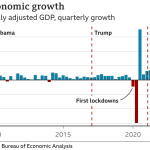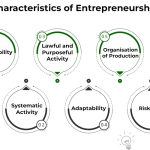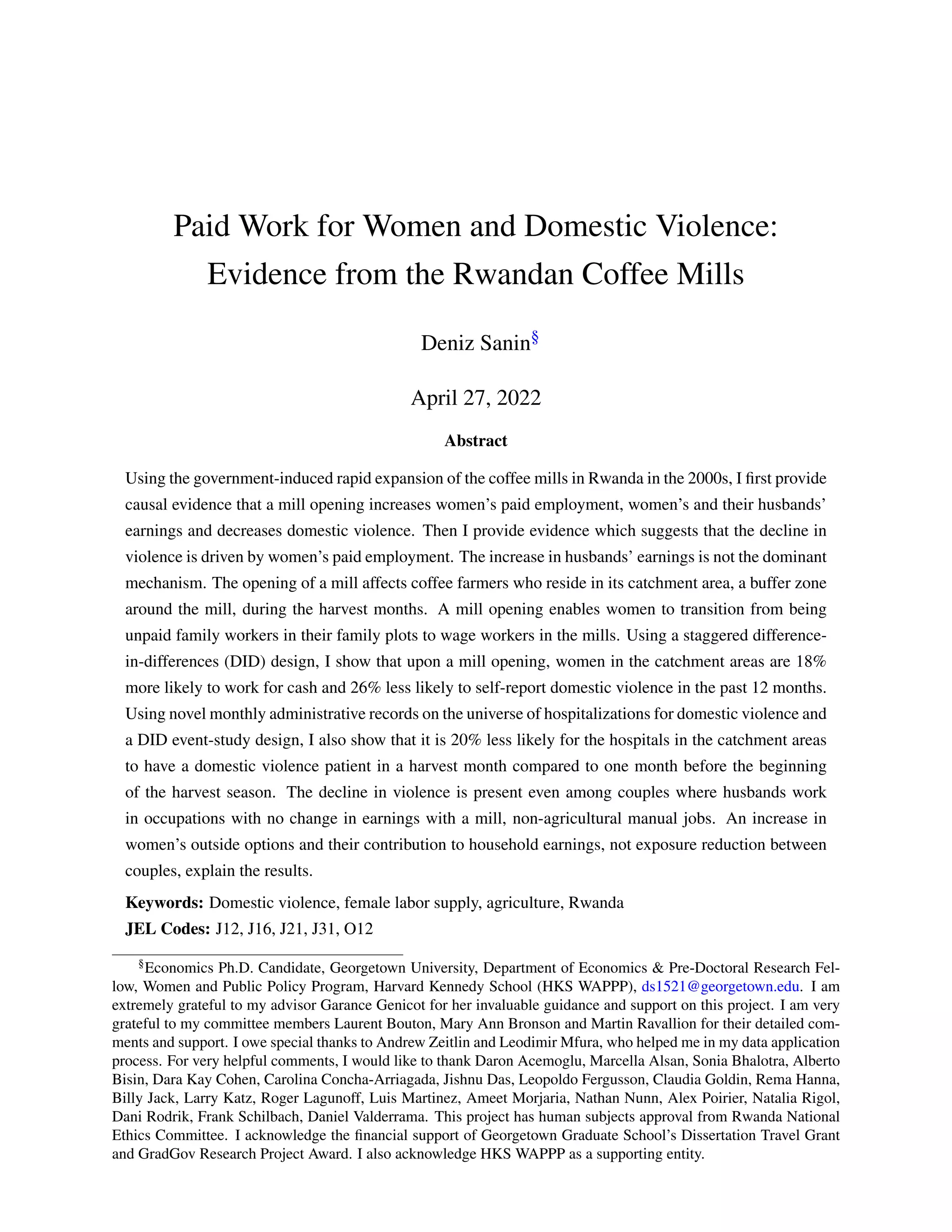The impact of Rwandan coffee on domestic violence is a significant topic of discussion, highlighting how the burgeoning coffee industry can help empower women and combat domestic abuse in Rwanda. As women enter the workforce through coffee cooperatives, they gain financial independence, which is crucial for their economic empowerment and reduction of domestic violence. Wage-earning women engaged in coffee production are less vulnerable to abusive relationships, especially during the harvest season when their contributions to the family economy are vital. Furthermore, this shift not only boosts household incomes but also fosters an environment of women empowerment, providing them with the means to assert themselves in household decision-making. By exploring the intricate relationship between the coffee industry benefits and reduced rates of domestic violence in Rwanda, we can better understand the transformative power of economic opportunities for women.
In examining the role of Rwandan coffee in addressing issues related to domestic violence, it becomes evident that this agricultural sector plays a crucial role in shaping socio-economic dynamics. The recent expansion of the coffee industry has opened new avenues for female participation in labor markets, which in turn enhances their financial autonomy and lowers the likelihood of experiencing domestic abuse. As these women become integral players in coffee production, they not only contribute to their families’ incomes but also elevate their status within households and communities. This interplay between economic activities and reduced domestic violence underscores the importance of wage opportunities for women, thereby highlighting coffee cultivation as a catalyst for broader social change. By investing in women and their roles in the coffee sector, Rwanda is taking significant steps toward creating an environment free from domestic violence.
The Role of Rwandan Coffee in Economic Empowerment
Rwanda’s burgeoning coffee industry has become a significant pillar in strengthening economic empowerment for women across the nation. By establishing over 200 cooperatives in the last two decades, the coffee sector has created job opportunities for countless women, allowing them to participate in the labor market as wage earners. This means more than just financial independence; it reflects a cultural shift towards recognizing women’s contributions to the economy. Women who engage in coffee processing can now gain visibility and respect within their communities, thereby fostering a supportive environment for gender equality.
Furthermore, the economic empowerment derived from working in coffee cooperatives provides women the means to influence household decisions. This newfound financial autonomy enables them to reclaim agency over their lives, from deciding how to spend their earnings to making choices regarding their health and well-being. As studies indicate, such independence can contribute to reducing rates of domestic violence, illustrating the profound impact of women’s employment in traditionally male-dominated sectors.
Impact of Women’s Employment on Domestic Violence in Rwanda
Research indicates a significant correlation between women’s employment in Rwanda’s coffee industry and the decline in domestic violence rates. According to Deniz Sanin’s findings, women participating in coffee processing through cooperative mills experience a noticeable reduction in domestic abuse during peak harvest seasons. The increased economic engagement empowers women, as their earnings directly link to familial economic stability. As a result, men are less likely to perpetrate violence since the harm could jeopardize their financial benefits derived from their wives’ labor.
Moreover, the shift in power dynamics within such households fosters environments where women can actively engage in decision-making processes, both personally and within their relationships. Being wage earners gives women bargaining power, allowing them to negotiate roles and responsibilities more effectively. Collectively, these changes contribute to a safer and more equitable home life, fundamentally altering the societal landscape concerning domestic violence in Rwanda.
Analyzing the 2008 domestic violence law in Rwanda reaffirms the necessity of structural changes alongside personal empowerment. Although the law provides a legal framework for women seeking protection from abusive partners, the economic empowerment facilitated by the coffee industry solidifies these mechanisms, thereby creating a more resilient defense against abuse. Thus, economic opportunities, such as those provided by the coffee sector, are integral to truly combatting domestic violence in this context.
Women Empowerment Through Wage Earning in the Coffee Sector
Wage earning women in Rwanda’s coffee industry are pivotal to the broader objective of achieving gender equality. The opportunity for financial independence leads to enhanced self-esteem and improved social standing for women. Many women who work in coffee cooperatives are able to provide for their families, educating their children, and participating in community development initiatives. This empowerment is crucial in challenging long-standing gender norms that have traditionally relegated women to the background of economic contributions.
As women acquire skills and knowledge through their roles in the coffee industry, they transform not only their lives but also those of future generations. Educated women contribute to a ripple effect, resulting in healthier communities and stronger local economies. These empowered individuals are more likely to advocate for women’s rights and participate in initiatives that promote the well-being of other women, creating a supportive network that diminishes the stigma associated with domestic violence.
Economic Benefits of the Coffee Industry for Women
The economic benefits of the Rwandan coffee industry extend far beyond mere profits, particularly for women engaging in this vital sector. As the network of coffee cooperatives continues to expand, so too does the potential for women to engage in wage labor that lifts them out of poverty. This economic upliftment not only empowers women as individuals but also strengthens their roles as family providers, fostering a new generation of wage-earning women who can challenge the prevailing norms of dependence on male counterparts.
Moreover, the extent to which women contribute to the coffee supply chain illustrates the critical role they play in Rwanda’s economy. Increased earnings enable women to invest in their health, education, and overall well-being. With more financial resources at their disposal, these women can also engage in entrepreneurial ventures, further bolstering their economic standing and that of their communities.
Social Implications of Women’s Financial Independence
The social implications of women gaining financial independence through coffee work in Rwanda are profound. With economic empowerment, women are often positioned to challenge societal norms that have historically marginalized them. The visibility of women in labor-intensive roles within the coffee industry reshapes public perceptions of gender roles, encouraging more equitable treatment in both domestic and professional settings.
As women occupy more visible roles in the economy, they become catalysts for change, inspiring a new generation to pursue education and career opportunities previously deemed unattainable. This transformation helps to create a legacy of empowerment, enabling future generations to forge their paths without the constraints of traditional limitations.
Connecting Coffee Production to Gender-Based Policy Making
The connection between coffee production and gender-based policy in Rwanda highlights the necessity of integrating women’s economic contributions into national policies. As evidenced by Deniz Sanin’s study, the rise of cooperatives presents a unique opportunity for policymakers to support programs that enhance women’s roles in the economy. Implementing initiatives that provide training and resources for women within cooperatives can further strengthen their economic foothold, contributing to a drastic reduction in domestic violence.
By coupling economic initiatives with legal frameworks, such as the domestic violence law enacted in 2008, Rwanda can create a comprehensive approach to improving women’s lives. This integration encourages sustained engagement from all sectors, empowering women not just as workers in the coffee industry but as integral stakeholders in the country’s socio-economic policies.
The Importance of Community Support for Empowering Women
Community support plays an indispensable role in the empowerment of women working in the coffee sector of Rwanda. The collective nature of cooperative mills fosters a sense of solidarity among women, encouraging them to share experiences, offer mentorship, and build resilience against socio-economic challenges. Such networks not only enhance women’s experiences in the workplace but also help mitigate factors that contribute to domestic violence through increased social dynamics and communal responsibility.
Additionally, community-led initiatives can serve as effective platforms for advocating against domestic violence. By mobilizing local resources and support systems, communities can challenge harmful practices and promote healthy relationships, enabling women to thrive both personally and professionally. The synergistic effect of community empowerment coupled with women’s financial independence is a powerful tool in combatting domestic violence across Rwanda.
Maximizing the Potential of Women in the Coffee Supply Chain
Maximizing the potential of women within the Rwandan coffee supply chain is critical for both economic and social progress. Leveraging women’s roles in coffee production not only enhances productivity but also drives innovations that can lead to improved quality and profitability within the industry. By ensuring that women receive equal access to resources, education, and opportunities for advancement, Rwanda can harness the full capacity of its workforce, leading to a more robust economy.
Furthermore, empowering women in the coffee supply chain establishes a foundation for reducing gender disparities in labor markets. As women ascend to leadership positions within cooperatives, they set precedents for inclusivity and equal representation, motivating future generations to pursue economic interests without societal limitations related to gender.
Future Directions for Research on Women and Coffee in Rwanda
Future research should continue to explore the intersection of women’s empowerment and the coffee industry in Rwanda, examining various factors that contribute to the sustained reduction of domestic violence. Longitudinal studies could provide deeper insights into the long-term impacts of women’s participation in coffee production on family dynamics and community resilience. Understanding these relationships will be crucial in drafting evidence-based policies that promote gender equity within the economic framework.
Moreover, it is essential to identify best practices from successful cooperatives and share these insights across the industry to maximize the benefits of women’s employment. By fostering an environment of continuous learning and adaptation, Rwanda can ensure the sustainability of the coffee industry as a platform for women’s empowerment and a driver for economic growth.
Frequently Asked Questions
How does Rwandan coffee production positively impact domestic violence rates?
Research indicates that the Rwandan coffee industry notably reduces domestic violence rates. Women participating in coffee production as wage earners experience less abuse from their husbands, particularly during the harvest season when their economic contribution is crucial to family income. The presence of cooperative mills allows women to transition from unpaid family work to paid roles, enhancing their financial empowerment and bargaining power, which correlates with a decrease in reported domestic violence incidents.
What role does women’s economic empowerment in the coffee industry play in reducing domestic violence in Rwanda?
Women’s economic empowerment through the Rwandan coffee industry significantly contributes to reducing domestic violence. As women become wage earners in coffee cooperatives, they gain financial independence, which improves their decision-making power within households. This empowerment diminishes the likelihood of domestic violence, as husbands have a vested interest in maintaining stability during the harvest season to protect their income.
Are there specific periods in the coffee harvest when domestic violence incidents decrease in Rwanda?
Yes, domestic violence incidents have been observed to decrease during the Rwandan coffee harvest, particularly from June to July. During this peak period, when women’s labor is closely tied to the household’s income, the economic necessity for husbands to avoid conflict rises, resulting in lower reports of domestic violence.
What evidence supports the link between wage earning women in the Rwandan coffee industry and reduced domestic violence?
Economist Deniz Sanin’s study shows compelling evidence that women engaged in the Rwandan coffee industry as wage earners report a 29% reduction in self-reported domestic violence incidents compared to those in areas without access to cooperative mills. The study’s findings highlight the causal relationship between women’s income and a decline in domestic violence, particularly when women have greater bargaining power.
How does the Rwandan coffee industry’s cooperative model benefit women and help combat domestic violence?
The cooperative model of the Rwandan coffee industry provides women with job opportunities, transforming them from unpaid family workers into compensated laborers. This economic empowerment is crucial in combating domestic violence, as women’s income leads to improved household dynamics and diminished risk of abuse, especially during the coffee harvest.
What cultural factors influence the effectiveness of Rwandan coffee employment in reducing domestic violence?
The effectiveness of Rwandan coffee employment in reducing domestic violence is influenced by several cultural factors, including the perceived threat of divorce and the economic dependence on women’s income. In contexts where divorce is a credible option, men are less likely to resort to abusive behaviors, as women’s employment directly benefits their economic interests.
Can the model of Rwandan coffee production be applied to other sectors to reduce domestic violence?
The model observed in Rwandan coffee production suggests that similar economic empowerment initiatives in other sectors may also contribute to reducing domestic violence. By providing women with wage-earning opportunities, other industries can potentially enhance women’s bargaining power and decrease the incidence of domestic abuse.
What lessons can be learned from the Rwandan coffee industry about domestic violence prevention?
The Rwandan coffee industry’s experience teaches us that creating economic opportunities for women significantly contributes to domestic violence prevention. Investments in women’s labor and empowerment not only improve family income but also foster healthier household relationships, highlighting the importance of economic independence in combating domestic abuse.
| Key Point | Details |
|---|---|
| Introduction of Rwandan Coffee Boom | Deniz Sanin’s research was inspired by the surge in Rwanda’s specialty coffee industry, which has empowered women economically. |
| Economic Empowerment Reduces Abuse | Employment at coffee cooperatives leads to reduced domestic violence as women earn wages and gain bargaining power. |
| Research Findings | Data from the Ministry of Health showed a 29% decrease in domestic violence reports in areas with coffee mills during the harvest season. |
| Cultural Context Matters | Sanin’s study highlights the importance of cultural acceptance regarding divorce and women’s independence in reducing domestic violence. |
| Economic Impact on Relationship Dynamics | Women’s income changes the economic dynamics within households, leading to better decision-making power and reduced violence. |
Summary
The Rwandan coffee impact on domestic violence reveals crucial insights into how economic opportunities can foster gender equality and lower abuse rates. By integrating women into the coffee production process, significant reductions in domestic violence have been observed, particularly during harvest times when women’s labor directly benefits their husbands’ earnings. This research underscores the vital role of female economic empowerment as a deterrent against domestic abuse, emphasizing the need for policies that support women’s employment and the cultural acceptance of independence.









